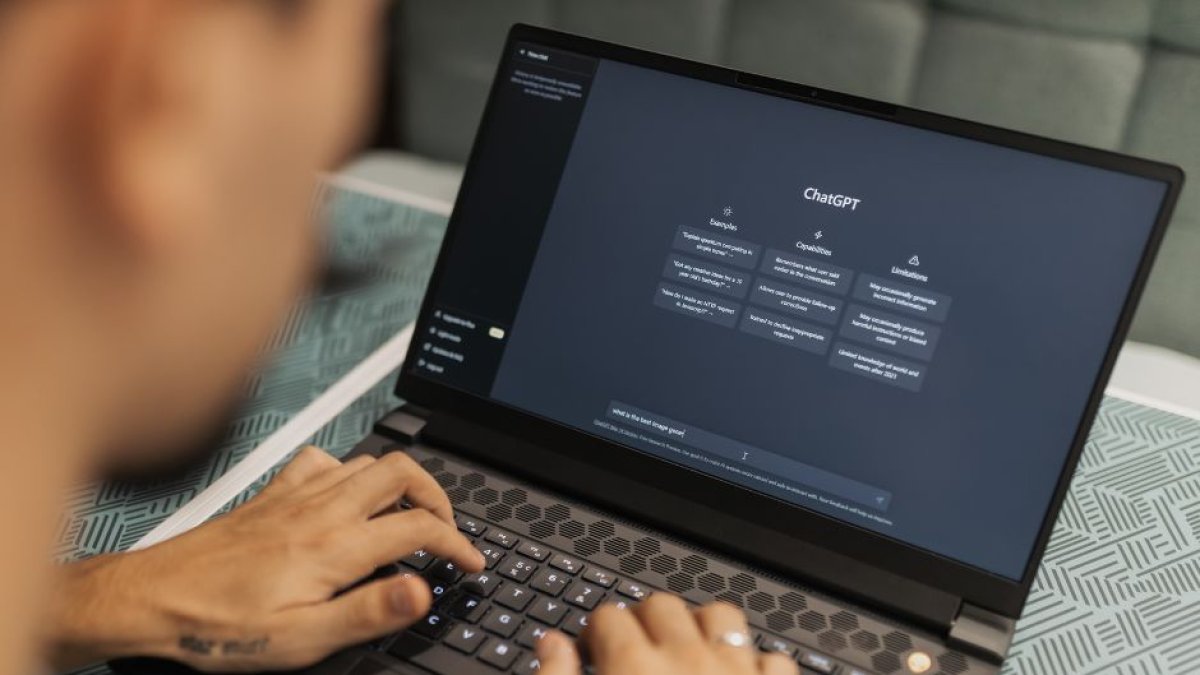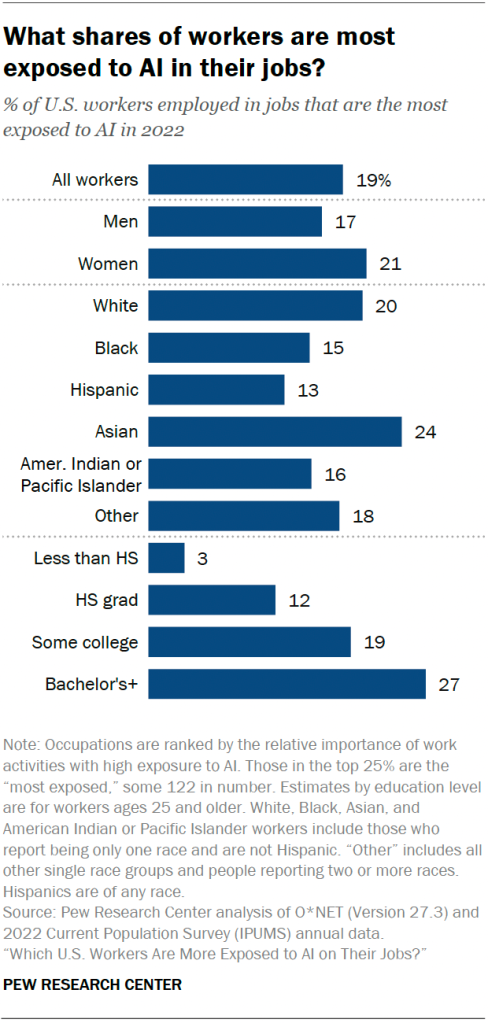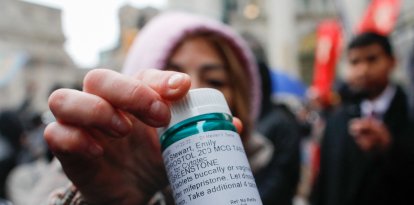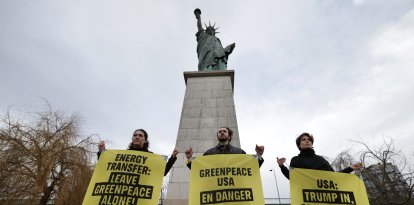Hispanics, the workers least exposed to artificial intelligence
Research by Pew Research Center looked into which jobs will be where AI will be able to fully or partially replace employees.

(Unsplash)
Will artificial intelligence (AI) lead to job losses? "The answer to this is unclear," argues a recent Pew Research Center study, because "AI could be used either to replace or complement what workers do."
But the center's researchers do venture to establish which positions are the most "exposed" to this new technology. This term does not guarantee either substitution or human-machine synergy, but rather establishes where AI will break through most vigorously. And, according to this criterion, Hispanics have emerged as the least exposed race.
According to the report, 13% of Hispanic Americans are exposed to artificial intelligence. At the other extreme are Asians, at 24%: "Asian workers and college graduates are among the highest paid of workers most exposed to AI."
Some 20% of white employees, on the other hand, are in vulnerable positions. The same is true for 15% of the black population.
Most exposed activities
Artificial intelligence excels in activities unique to human thinking. Thus, some of the activities it best replaces are processing information, thinking creatively or working with computers. The least: performing physical activities, establishing and maintaining interpersonal relationships and team building and development.
"Jobs with a high level of exposure to AI tend to be in higher-paying fields where a college education and analytical skills can be a plus," Pew Research Center analysts say. Web developers or budget analysts are more exposed than nannies or hairdressers.
Overall, 43% of Americans hold jobs that are likely to be replaced or assisted by this technology. Of these, 19% are highly exposed, while the remaining 23% are more secure.
Other exposed groups
The highest paid employees are highly exposed. The most exposed workers earned $33 an hour in 2022. Although this amount varies by ethnicity: in the case of Hispanics, those who are most protected earned $19 an hour in 2022 and those who are least, $29.
Likewise, women (21%) are more exposed than men (17%) and graduates (27%) more than those with only a bachelor's degree (12%).
























